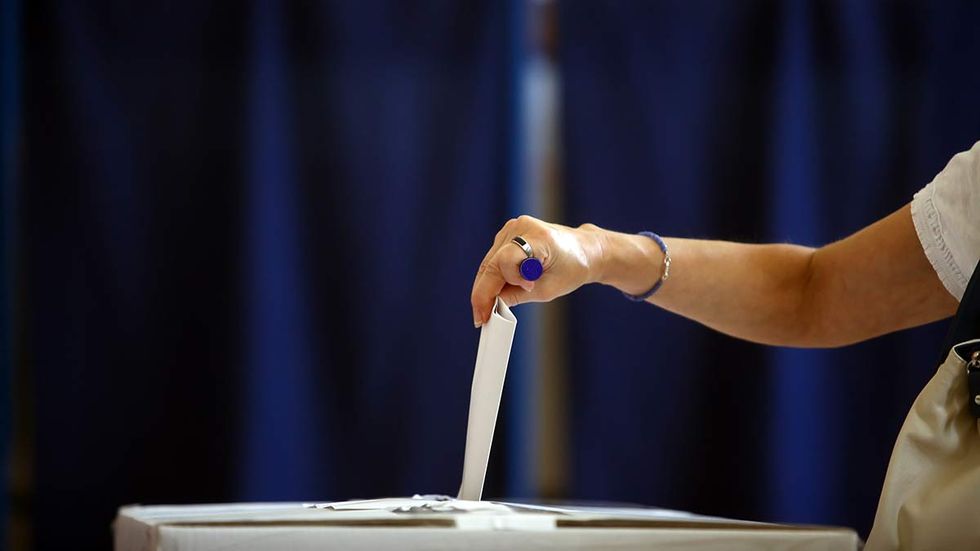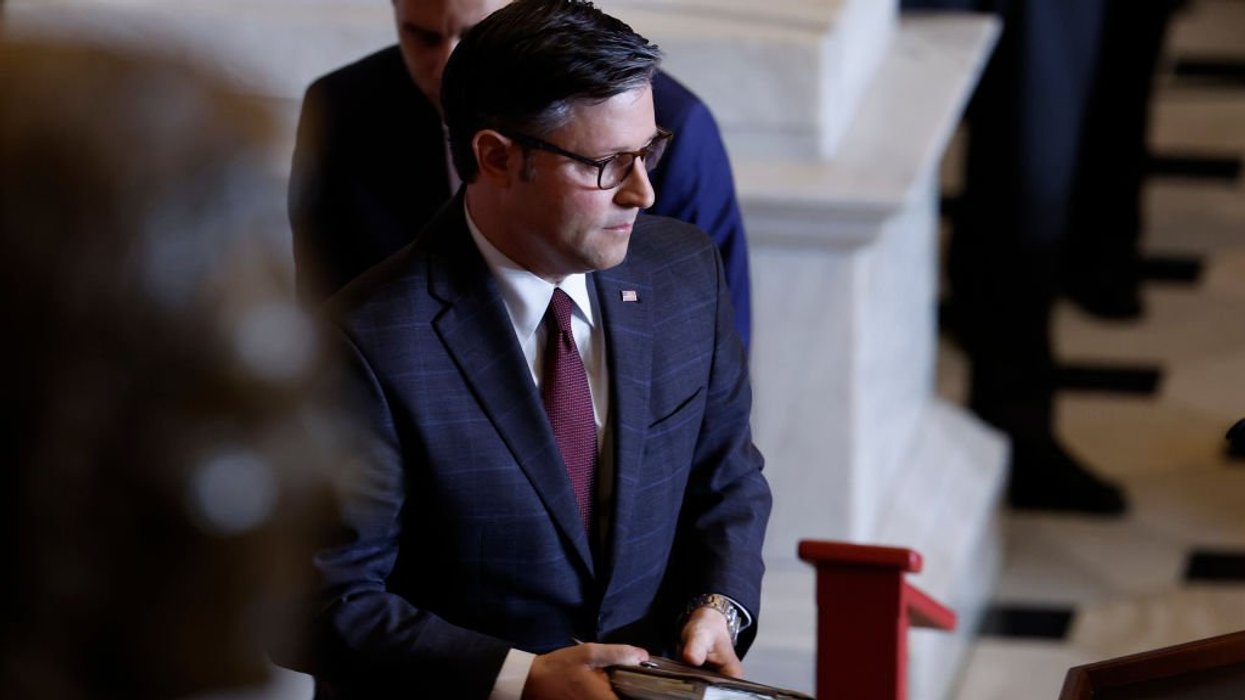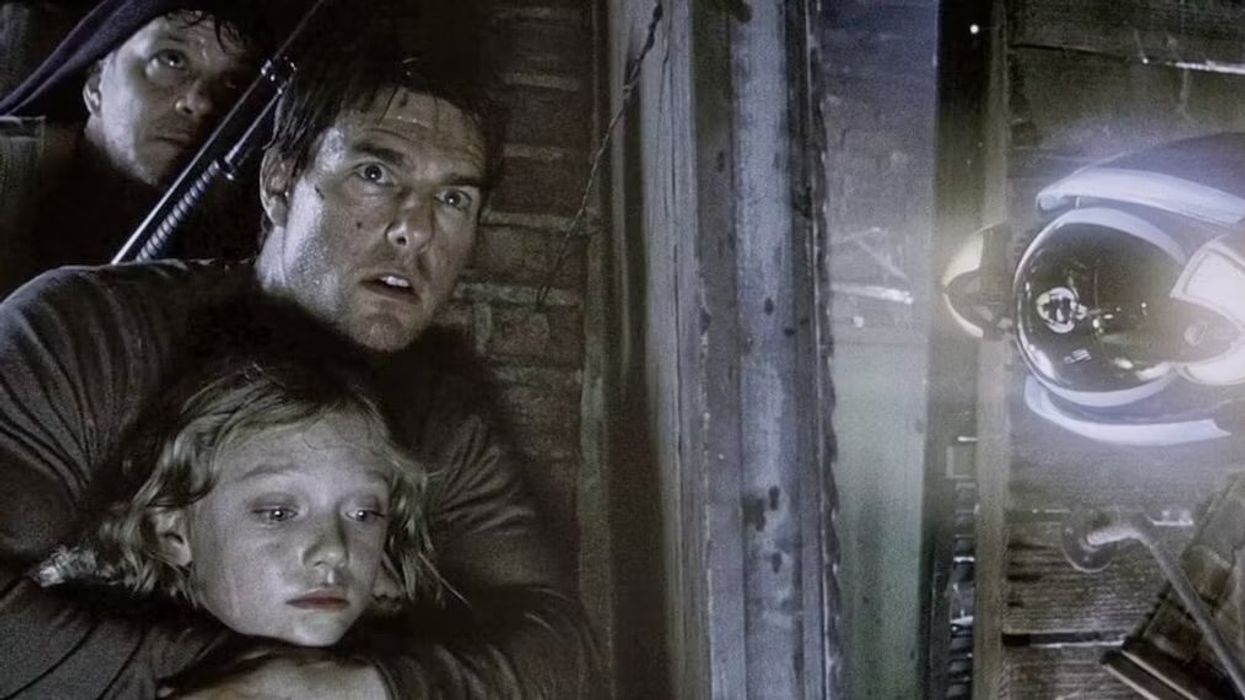
© 2024 Blaze Media LLC. All rights reserved.
Every four years, the world of politics is completely consumed with Election Day. However, election days have, ironically, become somewhat anti-climactic events because they no longer exist as they have since our Founding. We now have “election month.”
With the revelation that the FBI is re-opening its investigation into Hillary’s emails and Trump on the rise because he is keeping his mouth shut, many are wondering if Trump could pull off a major come-from-behind victory. The problem is even if his positive trajectory continues through Election Day, it might already be too late for him. Hillary might have already banked an insurmountable lead prior to the authentic Election Day set by Congress since 1845. According to the New York Times, with eight days until official Election Day, over 22 million people had already voted early. Some estimate that two-thirds of voters in critical states such as Colorado, Florida, Nevada, and North Carolina will have cast ballots before Election Day.
Irrespective of one’s view of either candidate, this dynamic is fundamentally unfair. It’s akin to having the jury begin casting its vote while the evidence in the case is still being presented and before closing arguments.
Constitution and federal law
Clearly, our Founders never envisioned protracted voting periods for as long as 4-6 weeks when ballots were cast and the results of how many registrants voted would be shaping the momentum of the election.
When discussing the election of the president, Art. II §1 cl. 4 of the Constitution states: “The Congress may determine the Time of chusing the Electors, and the Day on which they shall give their Votes; which Day shall be the same throughout the United States.”
Although states were to have control over all the administrative aspects of voting and voter eligibility (which courts are now violating), Congress was granted the authority to set the national Election Day for president. In 1845, Congress designated that day as “the first Tuesday after the first Monday in November.” In 1872, Congress enacted the same law governing elections to the U.S. House [2 U.S.C. § 7], and when the Seventeenth Amendment was ratified, Congress dictated that Senate elections should be held on the same day as well [2 U.S.C. § 1]. Congress never intended voting to begin more than a month before that day, as is practiced in many states.
Also, the spirit of the Constitution clearly dictates that Election Day should be uniform. Although the clause dictating that the “Day shall be the same throughout the United States” was referring to the day the electors choose the president, it was clearly understood as granting Congress the sole authority to set the uniform day for choosing the electors (what we regard as national Election Day).
The great constitutional historian, Justice Joseph Story, wrote that when Congress first designated the date for choosing the electors in 1792 (not just the date for the electors choosing the president), it was “[I]n pursuance of the authority given by this clause.”[1]
When defending the election clause from those who felt it gave the federal government too much power, former North Carolina Governor Richard Dobbs Spaight gave a robust defense at the North Carolina ratification convention. From the context of his words, it is clear that the power granted to Congress and the desire for uniformity applied both to the day the people choose the electors and to the day the electors actually vote for president:
Mr. Spaight replied, that he was surprised that the gentleman objected to the power of Congress to determine the time of choosing the electors, and not to that of fixing the day of the election of the President; that the power in the one case could not possibly answer the purpose of uniformity without having it in the other; that the power, in both cases, could be exercised properly only by one general superintending power; that, if Congress had not this power, there would be no uniformity at all, and that a great deal of time would be taken up in order to agree upon the time.
While many delegates to various state conventions objected to any federal control of elections, it was very clear that the Constitution had indeed vested Congress with the power to create a single election day. Ever since the Presidential Election Day Act set that date as "the Tuesday after the first Monday in November," it’s hard to see how a state holding multiple election days for in-person voting — without any excuse — is not a violation of this law, at least in spirit.
What is doubly ironic is that the federal courts have obliterated legitimate state control over methods and procedures of elections. Yet, when it comes to the actual date of the presidential election, which is fixed by Congress pursuant to the Constitution, the courts actually mandate that states have additional early voting. A backwards system indeed.
Rendering a Verdict before the Trial
Aside from the dubious constitutionality of early voting, the notion that, over the course of a volatile campaign, different people would vote at different times is absurd because there are so many events that could alter the public perception about a candidate. It makes sense that everyone should observe the same campaign for the same duration and render their verdict based on a uniform set of information only available once the entire campaign is completed. What if a major revelation comes to the forefront — either positive or negative — about a given candidate after ballots have already been cast?
In recent years, some states have gone as far as allowing early voting even before the presidential debates! Minnesota has been voting since September 23, prior to the first debate at Hofstra University. This is especially damaging for congressional races where challengers to incumbents are often lacking name recognition at this stage. Yet many people who would otherwise have an open mind voting for a known quantity will reflexively vote for the incumbent at this early stage.
Influencing the Outcome of Election Day
A quick glance at the congressional debates preceding passage of the election day law for presidents in 1845, and the election day for the House of Representatives in 1872, reveals that Congress clearly intended that states should have polls open only on the day prescribed in the statute. In 1871, Rep. Benjamin Butler (R-MA) spoke on the House floor about the need for a uniform voting day because otherwise “we may have a canvass going on all over the union at different times.” Butler’s concern was that it would give some states and political parties “an undue advantage.” He spoke of how the announcement of vote results in some states helped influence the momentum of the election.[2]
While official election results are not announced to the public prior to Election Day, practically everything else — from turnout by party to demographics — is either announced or can be ascertained. It is now known who has voted on every block in every state with early voting. The New York Times has an entire blog page dedicated to influencing the momentum of this election by prejudging the results. And as Rep. Butler feared, this certainly is designed to benefit a political party, in this case, the Democrats. It’s no coincidence that the electoral map substantially shifted in favor of Democrats beginning in 2008 when early voting first became a significant factor. As has been the case over the past decade, preliminary estimates of early voting turnout show a significant advantage for Democrats. Ace reporter, Jon Ralston, predicts that based on early voting, Hillary has a near-insurmountable lead in the critical state of Nevada. And since the Democrat base is comprised of monolithic groups, they can harness their GOTV machine to completely influence the perception of an election long before Election Day. This is obviously not an excuse for Republicans lacking a decent ground game for early voting, but it doesn’t make the state laws fair or just.
In his “Commentaries on the Constitution,” Justice Story presciently observed that the need for a uniform day was “self evident”:
Every reason of public policy and convenience seems in favour of a fixed time of giving the electoral votes, and that it should be the same throughout the Union. Such a measure is calculated to repress political intrigues and speculations, by rendering a combination among the electoral colleges, as to their votes, if not utterly impracticable, at least very difficult; and thus secures the people against those ready expedients, which corruption never fails to employ to accomplish its designs.
It goes without saying that, aside from the aforementioned reasons to end early voting, holding the vote over a protracted period invites corruption and fraud. It gives “those ready expedients” (think Soros community organizing groups) ample time “to employ to accomplish its designs.”[3]
Early Voting a killer for Insurgent Candidates in Primaries
Democrats will never agree to cede their advantage in early voting during general elections, but both parties should agree to reform the process for primaries, which affects both parties equally. Given that primaries are so heavily influenced by name recognition, new insurgent candidates — even the ones who are ultimately victorious — tend to surge in the final days of the election when there is the most intense coverage of the race. Unfortunately, states with early voting give incumbents and candidates with ubiquitous name ID an automatic advantage by allowing them to bank votes before enough voters know there is another viable candidate in the race.
Nowhere is early voting more deleterious and absurd than in presidential primaries. Unlike general elections, which were designed to occur on the same date in each state, the whole point of the staggered primary process is to allow unknown candidates to gain momentum gradually instead of competing in a national primary day with few resources. Yet, with the advent of early voting, the momentum from a surprise upset win in an early state could be mitigated by the fact that so many “early” votes were already cast in the “later” states for the initial front-runner.
Moreover, in what is perhaps the inanest outcome of early voting, presidential primaries are extremely fluid with multiple candidates dropping out after performing poorly in earlier states, yet a number of voters in later states with early voting have already cast thousands of ballots for a candidate that is no longer in the race on election day. We saw this across the board in the GOP primary when Cruz was vying for a mano-a-mano fight against Trump (who had the universal name ID from day one), but for weeks after candidates dropped out so much of the anti-Trump vote was already wasted on Rubio or other candidates no longer in the race.
If nothing else, it would make sense for the parties to come together and get rid of early voting at least for the primary process. Sadly, the establishments of both parties love early voting precisely because it benefits incumbents.
The trend for early voting is only getting worse. Democrats are seeking to expand the days, hours, and locations of early voting at every turn. In the states where they are out of power, the courts have enacted their early voting agenda for them. With modern communication and transportation, it is easier than ever to register to vote and cast a ballot or request and send back an absentee ballot if one is unable to vote in person on Election Day. If a single Election Day was good enough for our first two centuries when it was harder to travel or communicate, it should certainly work for us today.
Editor's Note: This piece has been updated to correct several typographical errors.
[1] Joseph Story, Commentaries on the Constitution of the United States, 3 vols. (Boston: Hillard,Gray, 1833), §1470.
[2] Congo Globe, 42d Cong., 2d Sess., 141 (1871) (remarks of Rep. Butler).
[3] The principle that Congress intended on only one election day both for president and congressional elections because of voter fraud and undo influences was clearly expressed by Senator Allen Thurman (D-OH) during debate on the 1872 law. “I think as a general principle it is best to have our elections on the same day whenever we can. We provided long ago by law that the election of electors of President and Vice President should take place on the same day throughout the United States, and for the same reason we may well provide that the election of member of Congress shall take place on the same day. Whenever you provide that elections shall take place upon the same day, you do interpose a not inconsiderable check to frauds in elections, to double voting, to the transmission of voters from one State to another, and you do allow the people to vote for their Representatives undisturbed by considerations which they ought not to take at all into account.” Cong. Globe, 42 Cong., 2d Sess. 618 (1872) (remarks of Sen. Thurman).
Want to leave a tip?
We answer to you. Help keep our content free of advertisers and big tech censorship by leaving a tip today.
Want to join the conversation?
Already a subscriber?
Blaze Podcast Host
Daniel Horowitz is the host of “Conservative Review with Daniel Horowitz” and a senior editor for Blaze News.
RMConservative
more stories
Sign up for the Blaze newsletter
By signing up, you agree to our Privacy Policy and Terms of Use, and agree to receive content that may sometimes include advertisements. You may opt out at any time.
© 2024 Blaze Media LLC. All rights reserved.
Get the stories that matter most delivered directly to your inbox.
By signing up, you agree to our Privacy Policy and Terms of Use, and agree to receive content that may sometimes include advertisements. You may opt out at any time.



